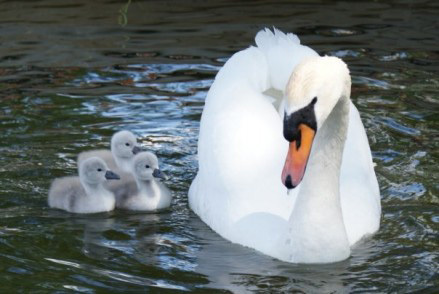
What makes Danish pedagogy special?
The pedagogy focuses on the child as a whole, the happy child, and the social competences of the child. This approach builds on an awareness that the child in and of itself has an inner power, which the pedagogue and teachers must strengthen and develop. The purpose is to build up the self-esteem and self-understanding of the child.
Why include Hans Christian Andersen's fairy tales?
Fairy tales create connections and give the child a sense of purpose in life and an understanding of the surrounding world. Hans Christian Andersen’s fairy tales are unique in their capacity to talk to both children and adults. They speak of human nature, and do so with great sympathy for the children. They are universal, highly topical, and are understood across country borders, age, and educational backgrounds.
Why Grundtvig?
With Grundtvig there is a very close connection between experience and learning. Life comes prior to information. Children have an innate value—they are ‘someone’ or ‘something’ before they begin to learn. “Imagination and feelings belong just as much within the proper human being as the intellect.” Popular enlightenment and culture are keywords. Throughout life, we learn and change our understanding of who we are. For Grundtvig, this formative process is lifelong.
Why "dannelse" or Bildung?
“Dannelse” can best be expressed by the German word “Bildung” or translated to “personal and social development”. Bildung has nothing to do with trivia knowledge. It is an expression of the process that forms the personality, and which takes place in an interplay between the individual and the surrounding world. Bildung goes hand in hand with the feeling of community and the interplay between the individual and the surrounding world.
What do the participants gain?
The participants leave from a stay at the folk high school with new perspectives on their view of children and human nature, and insight into Danish values, such as trust, equality, and respect for the rights of children. They gain an approach to learning where imagination, abundance of ideas, and delight in story telling take center stage. They experience a community, new friendships and relationships across language, age, and background.
How did the project start?
In 2017, Dong Ruixiang arrived at Nordfyns Højskole with the first team of course participants consisting of pedagogues, kindergarten leaders, and journalists. Since then, more than 250 participants have attended courses, and the project has spread like ripples in a pond.
Where and how is it done?
Courses of two to twelve weeks’ duration are run primarily at Nordfyns Højskole. Concurrently, we carry out learning and culture tourism courses of 8–12 days’ duration, which take place on Funen with excursions to other parts of the country.
Why folk high school?
The attitudes and ideas of the participants are challenged through community lessons, lectures, and daily life shared with others. They obtain new social, personal, and professional perspectives, and they get an opportunity to reflect on the approach to learning and the big questions of life.
Who are the target groups?
In Asia, we address pedagogy students, social educators, kindergarten leaders, as well as families with children, children in camps, and other special groups that are interested in cultural exchange. In Denmark the target group is senior social educators who would like to visit China and teachers and collaborators.
How do we disseminate the project?
We have hundreds of ambassadors who have attended courses and been through educational courses. The project is disseminated via collaborators in China on social media platforms and via ambassadors and their contacts.
Hans Christian Andersen and China
Practically everyone in China know Hans Christian Andersen. His name first appeared in China in 1913 and the following year he is translated into Chinese for the first time. The first publications came out in 1918. Since then, numerous translations and publications have occurred, and Andersen is still required reading in schools. Mao liked the fairy tales and, contrary to a number of other great international authors and philosophers, the works of the Danish poet were permitted reading during the Cultural Revolution.
Grundtvig and Asia
Several countries in Asia know of Grundtvig. In China, the interest began at the beginning of the 20th century. In the 1920s and early 30s, the interest increased in step with the fact that many reformers recognized that the road to financial and political progress was through the development of the villages. However, at the end of the 30s, Grundtvig became unfashionable and when the People’s Republic was created in 1949, the Soviet Union become the new model for education.


